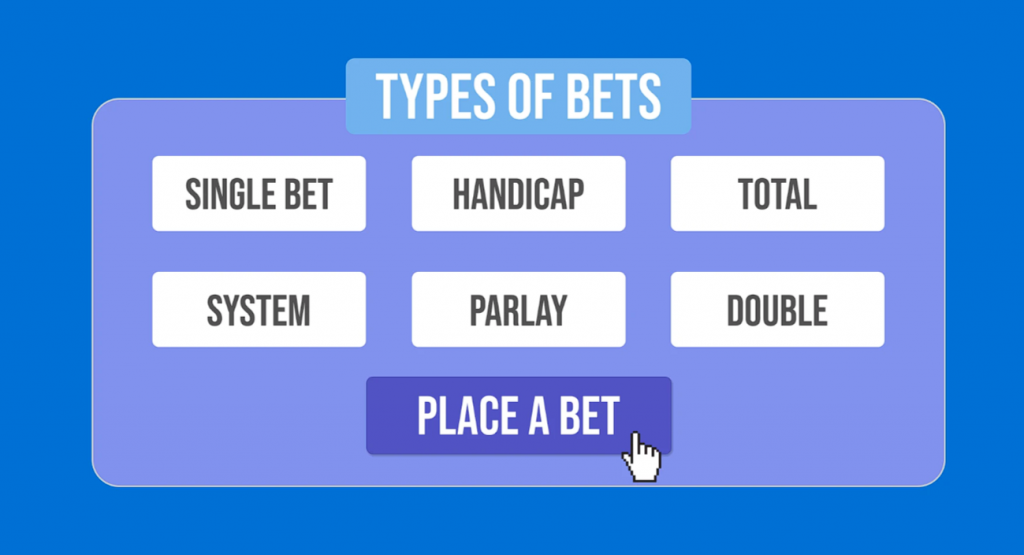In the world of sports betting, understanding different bet types is crucial for making informed decisions and maximizing your chances of success. Whether you’re a novice or an experienced bettor, familiarizing yourself with various bet types can enhance your betting strategy and overall experience. This article explores the most common bet types, including straight bets, parlay bets, and more.
Straight Bets
Definition and Basics
- Simplicity: Straight bets are the most straightforward and common type of bet. They involve betting on a single outcome, such as the winner of a match or whether a specific event will occur.
- Popularity: Due to their simplicity, straight bets are popular among both novice and experienced bettors. They provide a clear and easy-to-understand betting option.
Examples of Straight Bets
- Moneyline Bets: Betting on which team or player will win outright. The odds are presented as positive or negative numbers, indicating the favorite and underdog.
- Point Spread Bets: Betting on whether a team will cover the spread, which is a margin set by the bookmaker to even the odds between two teams.
- Total (Over/Under) Bets: Betting on whether the total number of points, goals, or runs scored in a match will be over or under a specified number.
Parlay Bets
Definition and Basics
- Combination Bets: Parlay bets involve combining multiple straight bets into a single wager. Each selection within the parlay must win for the bet to be successful.
- Higher Risk, Higher Reward: Parlays offer higher potential payouts compared to straight bets but come with increased risk, as all selections must win.
Examples of Parlay Bets
- Two-Team Parlay: Combining two straight bets, such as betting on the winners of two different matches. Both selections must win for the parlay to be successful.
- Multi-Sport Parlay: Combining bets from different sports, such as betting on the winner of a football match and the winner of a basketball game.
Advantages and Disadvantages
- Advantages:
- Potential for Large Payouts: Parlays can offer significant payouts, especially when combining multiple selections with high odds.
- Excitement: The all-or-nothing nature of parlays adds excitement and engagement for bettors.
- Disadvantages:
- Increased Risk: The risk of losing the entire bet is higher, as all selections must win.
- Complexity: Parlays can be more complex to understand and manage, especially for novice bettors.

Prop Bets
Definition and Basics
- Proposition Bets: Prop bets involve betting on specific events or outcomes within a match that are not directly tied to the final result.
- Variety: Prop bets offer a wide range of betting options, adding diversity and excitement to the betting experience.
Examples of Prop Bets
- Player Props: Betting on individual player statistics, such as the number of goals a player will score or the number of yards a quarterback will throw.
- Team Props: Betting on team-specific outcomes, such as which team will score first or the total number of corners in a soccer match.
- Game Props: Betting on specific game events, such as the length of the national anthem during the Super Bowl or the color of the Gatorade dumped on the winning coach.
Advantages and Disadvantages
- Advantages:
- Entertainment Value: Prop bets add an entertaining element to betting, allowing bettors to engage with various aspects of a match.
- Variety: The wide range of prop bets available provides numerous betting opportunities.
- Disadvantages:
- Higher Vig: Prop bets often come with a higher vigorish (vig), meaning the bookmaker’s cut is larger.
- Unpredictability: Some prop bets can be highly unpredictable, making them riskier than other bet types.
Futures Bets
Definition and Basics
- Long-Term Bets: Futures bets involve betting on events that will occur in the future, such as the winner of a championship or season-long awards.
- Patience Required: Due to their long-term nature, futures bets require patience, as the outcomes may not be determined for weeks or months.
Examples of Futures Bets
- Championship Winners: Betting on the winner of a league or tournament, such as the Super Bowl or the World Cup.
- Season Awards: Betting on individual awards, such as the MVP or Rookie of the Year in various sports.
- Team Performance: Betting on a team’s performance over a season, such as their total number of wins or whether they will make the playoffs.
Advantages and Disadvantages
- Advantages:
- Potential for High Payouts: Futures bets can offer high payouts, especially when betting on longshots or underdogs.
- Engagement: Futures bets keep bettors engaged throughout the season, adding excitement and interest.
- Disadvantages:
- Tied-Up Funds: The long-term nature of futures bets means that funds are tied up until the bet is settled.
- Injuries and Unforeseen Events: Injuries, trades, and other unforeseen events can significantly impact the outcome of futures bets.
Conclusion
Understanding different bet types is essential for making informed betting decisions and maximizing your chances of success. Whether you prefer the simplicity of straight bets, the excitement of parlays, the variety of prop bets, or the long-term engagement of futures bets, each bet type offers unique advantages and challenges. By familiarizing yourself with these bet types and incorporating them into your betting strategy, you can enhance your overall betting experience and increase your chances of winning.
